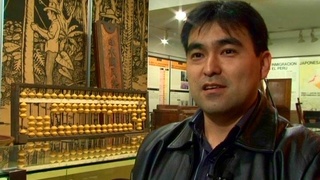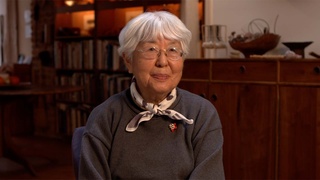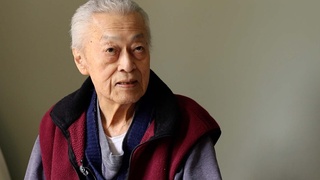Interviews
“I did what I wanted to do”
I did what I wanted to do. That’s why, people say, well he’s a happy guy for the kind of art he does. Yeah, ’cause I’ve no regrets.
You got, you don’t wanna be my age and say, you know, I shoulda done this, I shoulda, I shoulda done painting. Because where is this leading to? If you think about it and you’re in San Bernardino, you know, um, just got out of camp, and you wanna be an artist? Like in some families that may make sense but—I was playing over there.
But it don’t make sense in my family. No one thought of art, no one plays an instrument, no one—so, why I became this, I don’t know, but, I’m glad I did it. Because we’re gonna go through this, as I said, whatever happens next, happens next, you ain’t got no control over it. But, this I do have control over, and it’s mine.
Date: September 8, 2011
Location: California, US
Interviewer: John Esaki, Kris Kuramitsu
Contributed by: Watase Media Arts Center, Japanese American National Museum
Explore More Videos

Giant Robot, a stepping stone for young artists
Giant Robot co-founder and publisher


Taiko, an element that represents strength (Spanish)
(b. 1974) Director of Ryukyu Matsuri Daiko in Peru



Resettling in Chatham
(1941-2018) Japanese Canadian photojournalist and activist








The first print image from film
(1934–2018) Japanese American designer, educator, and pioneer of media technologies

Postwar sponsorship (Inglês)
(b. 1936) Japanese Peruvian incarcerated in Crystal City
